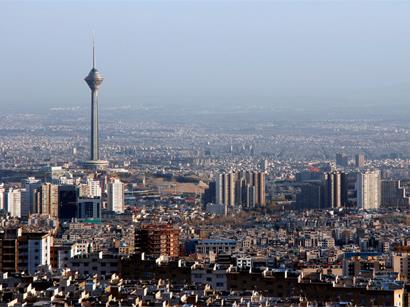
Iran vs. Iranian fraudsters
By Azer Ahmadbayli – Trend:
For the past few months Iran received a number of foreign investments to put its limping economy in order.
In addition to €8B allocated by Export–Import Bank of Korea and $35B assigned by several Chinese banks, Europeans woke up last week to contribute to the process.
Oberbank () became one of the first European banks to sign an investment deal with Iran (€1B) since the sanctions on Iran were eased in 2016.
"This will encourage more banks, the rather bigger and more conservative banks, also to attempt strengthening ties with Iran," Bahaoddin Hosseini Hashemi, former president of Sarmayeh Bank, told Trend.
The same day Denmark's Danske Bank signed a deal for a €500m line of credit with ten Iranian banks. Also, French state-owned bank BPI France is going to provide a €500m credit line to French companies wanting to invest in Iran.
Funds are allocated by way of FDI as well as credit lines.
Clearly, Iran welcomes the process. It is a good opportunity to revive sanction-affected segments of economy (automotive industry, oil&gas upstream etc.), to place funds in sectors relatively young for Iran (renewable energy), to invest in infrastructure (transport, ports, railroad network). New jobs will lower social tensions.
Politically it may be interpreted as a token of trust – a thing that Iran needs most of all now.
However, Iran can face challenges within the process.
One part of them was described in details in TREND's previous overview, headlined , which discussed the ability of Iranian companies to meet their commitments to pay back the allocated loans as well as the uncertain future of forex rate in Iran.
Here some other concerns have been touched upon:
Political risks
USA, the major superpower which has a say in most of international affairs, is signaling of its possible leave from JCPOA. Nobody now can predict now the consequences of that move, if it happens.
Despite the EU Ambassador to US David O'Sullivan's Monday statement that if the US pulls out of the nuclear deal and reapplies sanctions, the European Union could take advantage of a mid-1990s statute that would protect European companies from being penalized, it doesn't seem real for EU to fully ignore Washington's position. In any case, if Washington exits the deal, it could someway affect incipient investment process.
Inner risks
Bribery and gray schemes of greenwashing and smurfing should concern Iranian Government not to a less but to a greater degree than political risks. For the last few years there were several high-profile cases in Iran related to fraud and money laundering, especially in the country's banking sector.
Take alone the famous 2011 fraud case of Mahafarid Khosravi, the CEO of Amir Mansoor Arya Investment Company, who was charged with $3-billion embezzlement and sentenced to death on charges of "corruption and disrupting the country's economic system."
14 Iranian banks were involved in the case, including state-run Bank Saderat and Bank Melli. The case raised questions about corruption at senior levels in Iran during the administration of the former president Mahmoud Ahmadinejad.
Cases like that one are only the tip of the iceberg. Iranian leadership cruelly suppresses such crimes but as international experts admit, Iran didn't succeed too much. The 2016 Basel Anti-Money Laundering (AML) Index identified Iran as the highest money laundering risk out of 149 countries surveyed.
Iranian Government has to take comprehensive control over the inflow of foreign investments, no matter what type they are, for money to reach its proper destination. It is a crucial condition.
On the other hand, if European banks feel financial and reputation risks by getting evidence of any suspicious transactions or deals Iran is involved, they could turn away from further investments, which are vital for Islamic Republic.
There is one more thing to be noted. In perspective, if investment climate in Iran improves, it can be used by European community as an additional argument to support Tehran's interests.
But if this matter of national importance fails, Iran will lose confidence of EU partners – one of Tehran's key assets today.

Legal Disclaimer:
MENAFN provides the
information “as is” without warranty of any kind. We do not accept
any responsibility or liability for the accuracy, content, images,
videos, licenses, completeness, legality, or reliability of the information
contained in this article. If you have any complaints or copyright
issues related to this article, kindly contact the provider above.















Comments
No comment